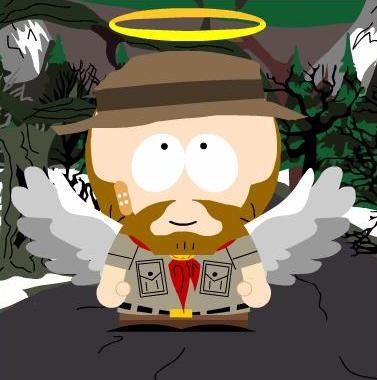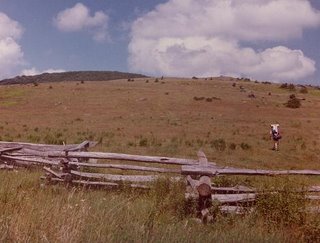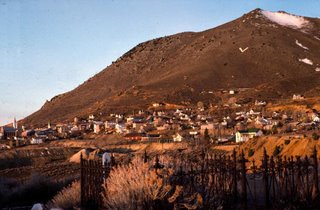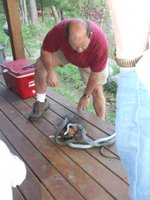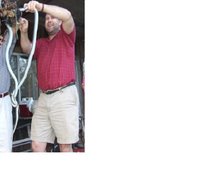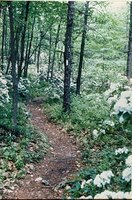 The intoxicating rich smell of yeast overwhelmed me the week after I finished my freshman year in college. I had accepted a summer job in the bakery. I was going to be a a bread trayer. If ever there was an entry level position, this was it. The bread would come out from the room where it was sliced and put into bags. For eight and sometimes more hours a day, another guy and I would take bread off the assembly line and place them either onto plastic trays that were slide into a rack, thirty trays to the rack. Or, depending on where the product was heading, placed in plastic tubs that stacked on top of each other, 15 high. Each tray or tub held ten, one and a half pound loaves, or twelve one pound loves. When a rack or stack of tubs was filled, they were pushed aside for someone in shipping to come in and haul them out to trucks. For me, the nation’s bicentennial summer promised to be long and hot and filled with soul music (as Bobby and Roy, the bagging operators who controlled the music, were both African-American).
The intoxicating rich smell of yeast overwhelmed me the week after I finished my freshman year in college. I had accepted a summer job in the bakery. I was going to be a a bread trayer. If ever there was an entry level position, this was it. The bread would come out from the room where it was sliced and put into bags. For eight and sometimes more hours a day, another guy and I would take bread off the assembly line and place them either onto plastic trays that were slide into a rack, thirty trays to the rack. Or, depending on where the product was heading, placed in plastic tubs that stacked on top of each other, 15 high. Each tray or tub held ten, one and a half pound loaves, or twelve one pound loves. When a rack or stack of tubs was filled, they were pushed aside for someone in shipping to come in and haul them out to trucks. For me, the nation’s bicentennial summer promised to be long and hot and filled with soul music (as Bobby and Roy, the bagging operators who controlled the music, were both African-American).But there was a bright side to the monotony. My work station faced the roll packing line and there, maybe thirty feet away was Linda. In her mid-30s, she was a hot blonde fireball. She wore as short of skirt and as much heel as they allowed in the plant, and she had the legs to do it. Her hair was always pulled up, a requirement for working around food, but little ringlets could be seen sticking out from her hat. Loud, she could just as easily tell a joke as to cuss out a supervisor. And her job was every bit as boring as mine. She and Virginia, her co-worker, stood where the hamburger and hotdog buns came off the cooling conveyor. Her job was to lightly place four or six rolls into a slot on another conveyor. Virginia would then place another set of rolls on top and a pocket conveyor would take them through the bagging process.
From where I stood, I could see Linda's backside. Being short, she had to rise up on her toes to reach across the conveyor, a process she’d complete a dozen or so times a minute, which kept her legs well toned. Each time, her muscles tensed just enough to display her tanned and well shaped calves and thighs. For the first week or so, I watched Linda in awe, from the safety of my station. She’d always say hi when I walked by the roll line to go to the bathroom or lounge. Then it happened. One day they had a long run on rolls and Virginia got sick. Having proved that I could pick up these basic skills quickly, and since we were done early, I was asked if I would take Virginia’s place. For the next three hours, I stood by Linda, as together we packed rolls. She was flirty and funny and seemed to take as much delight working next to me as I did of being beside her.
Sometime that evening, Harold, a mechanic, came by with a Mountain Dew. He offered Linda a drink; she took a sip and then asked if I could have some. From the very beginning, Harold had been calling me “college boy,” so I decided I could finish his drink off as pay back. When there was a break in the rolls, I raised the can to my lips, tossed back my head and began chugging. About the second swallow, I realized this wasn’t Mountain Dew, at least not the soft drink variety. There I stood with a mouth full of bourbon and all eyes on me. They assumed I knew it was liquor. It was part luck, part willpower, that I didn’t baptize the rolls with bourbon. My throat burned as I down it all and for the rest of the evening, things were a lot sillier.
Of course, I quickly learned that alcohol wasn’t only the substance being used at the plant. Whenever there was a mechanical problem in the back end of the plant, we’d get a break in production. When this occurred, we were put busy cleaning up, but once things were clean, we were free to get a drink and go out onto the loading dock where those who smoked, would light up. One day, Roy who was operating the slicers and baggers on our shift, lit up a joint and proceeded to get high. When the bread started running again, Roy made a mistake. He had previously blocked a switch that had been causing him problems. Its purpose was to automatically stop the machine if the guard wasn’t fully extended. Roy reached in to clear a jam and the arms that reach out to grab a loaf of bread and pull a bag over it, some forty times a minute, shot out and struck Roy in his lower arm. The machine’s arm was also sharp so that the bags would pull easily off it. Roy ended up with 25 stitches and a broken arm and I was given an opportunity to learn how to operate the machinery. When Roy returned to work, I went back traying bread, but it wouldn’t be long before Roy left for good and I took over operating the machinery on the second shift.
I’m not sure why Roy left. I don’t think anyone in management knew his accident wasn’t really an accident as he had compromised safety devices and was physically impaired. It was only a couple years later, after I had become a supervisor that I realized that how much you didn’t know by being the boss. Although he had his problems, I liked Roy. Being an operator, he watched those of us who were traying bread and treated us well. He had spent ten years in the army, serving a term in Vietnam, which caused him to reconsider making the army a career. Having seen enough shit, he’d adopted a live and let live attitude and never complained. I'm sure smoking pot had a lot to do with his attitude.
I don’t remember much about the Bicentennial that summer, except that I went down to the river on the night of July 4th, for what was supposedly the largest fireworks display the city had seen. They were launched from across the river, next to the permanently moored World War II battleship, the North Carolina. It wasn’t an impressive display and everyone was very disappointed, but then in 1976, there was a lot to be disappointed about. Although the horror of Vietnam was over, there was a sense within the country that we’d failed and made a bad mistake. The economy was shot and interest rates were going through the roof. Gerald Ford was in the White House, due to the moral failings of Nixon and Agnew. People were suggesting that the American era was over, which was daunting prospect for a nineteen year old kid. I had a feeling I might never share in the American Dream, whatever that was. But I had hope. I was in love with a girl my own age who loved me and I had Linda.
I eschewed Linda’s suggestions that we go out or that I stop by her apartment after work. I felt it would be unfair to her, for I knew I would never commit to a woman that was nearly my mother’s age. But I ate her attention up. I felt like a king the night I worked a double shift and she came back unexpectedly, with dinner. She had prepared it herself. I don’t remember what she fixed, but we ate in the break room. Linda sat across the table from me, smiling the whole time. I could tell she was proud of her efforts.
When Linda quit the bakery the next year, to take a much better job, she threw a big party at her apartment. I was definitely out of my element. I’d seen plenty of people smoke marijuana in high school and college, but I was shocked to find several supervisors and mechanics my parents age smoking out on her balcony. I stayed inside, slowly nursing a Jim Beam on the rocks. The party was Linda's last attempt at wooing me. At about 10:30 PM, everyone left quickly. I later learned she conspired to work this out. I was left in the apartment with Linda and a guy from the shipping dock who was stoned and sleeping on her couch. Wrapping her arms around my neck, and rising up on her toes, she surprised me with a deep passionate kiss. It was wonderful and seemed to last forever.
Afterwards, we held each other around the waist. She looked up and asked if my girlfriend could kiss so well. Although I didn’t answer, her question brought me back to reality. Yet, it was the most passionate kiss I’d experienced, although a bit bittersweet as it was my first time kissing a smoker. I declined her offer to go back into her bedroom, instead offering to help clean up. As we straightened up and washed dishes, we joked around and talked about the bakery and recalled memories. When we were done, we woke the guy sleeping on the couch and I gave him a ride home. Linda kissed my cheek and whispered that I should come back, but we both knew I wouldn’t.
